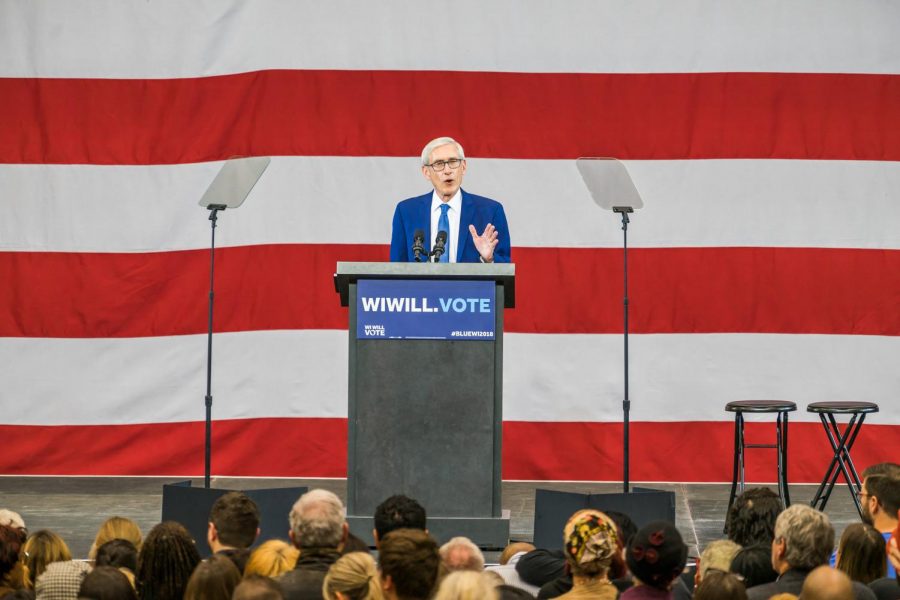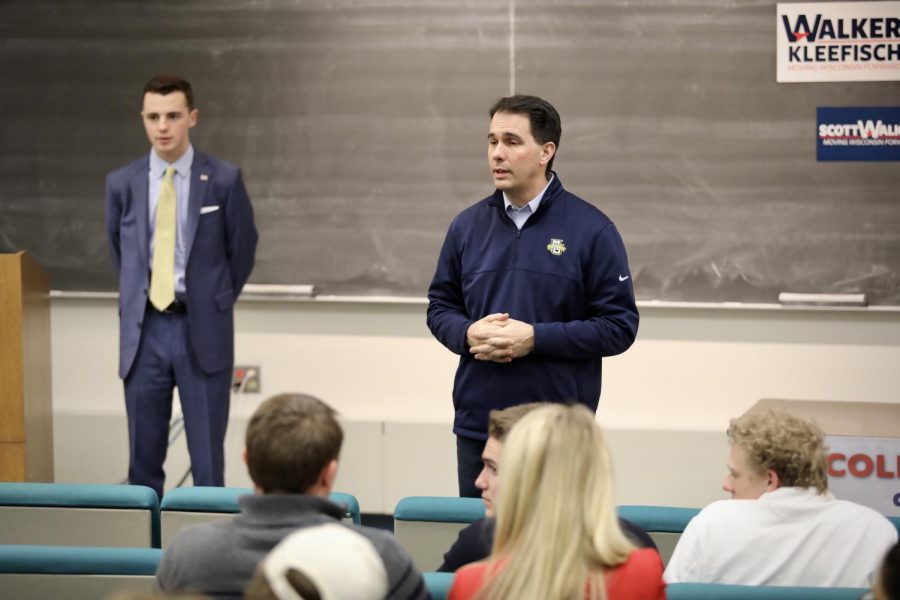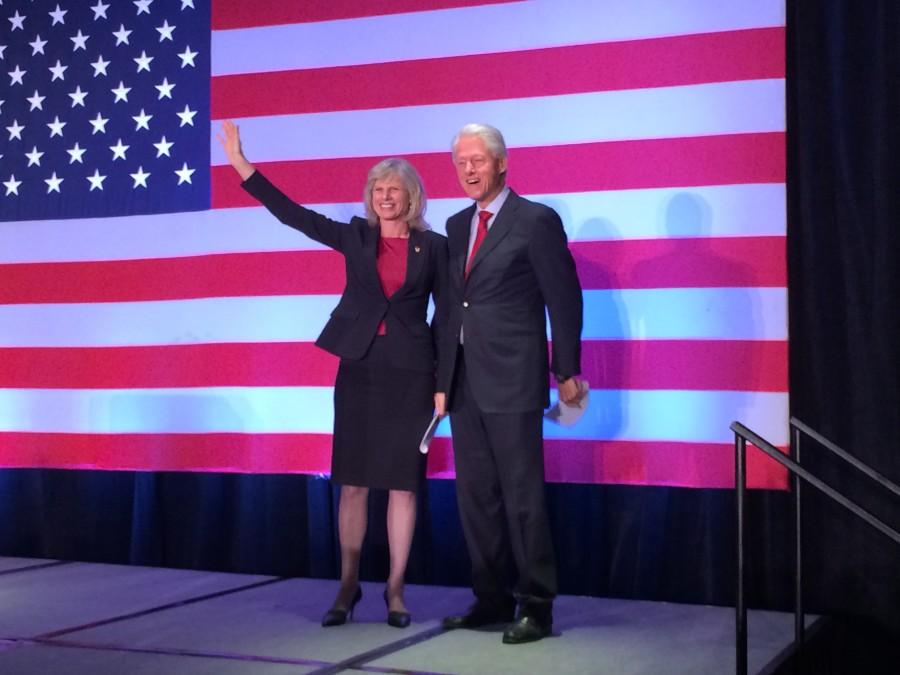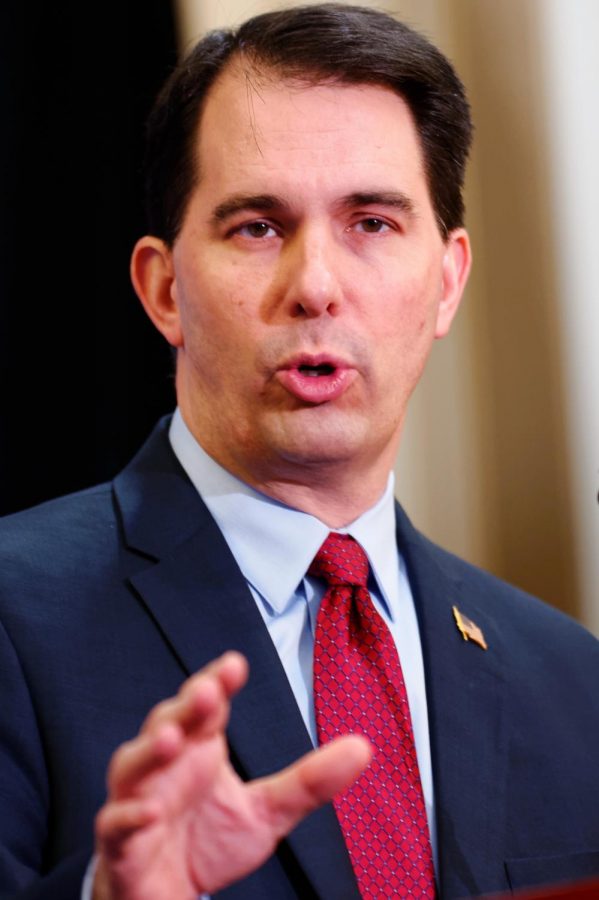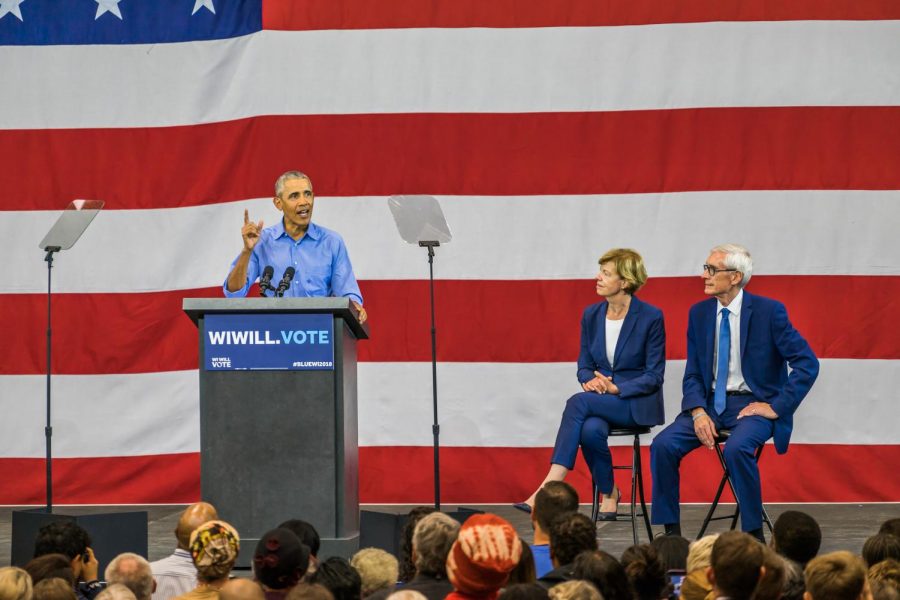In a neck-and-neck race Tuesday night, Democratic challenger Tony Evers appears to have won against incumbent Republican Scott Walker as the next governor of Wisconsin. Evers led by a margin of 1.2 percent with 99 percent of precincts reporting.
“Was it close enough for you? … We’ve won Wisconsin with grace and a lot of happiness,” Evers said in his victory speech at Orpheum Theater in Madison.
After a close night, Evers gave his speech just after 1 a.m. Wednesday morning.
In 2017, Walker signed a law tightening criteria to file for election recounts. Under the law, losing candidates may file a recount petition if his or her total votes are within one percent of the winning candidate’s total votes. In this year’s election, Walker was right outside that margin.
Walker won a recall election in 2012 against Milwaukee mayor Tom Barrett. With 53 percent of the vote compared to Barrett’s 46 percent, Walker was the first governor to win a recall election in the United States.
Wisconsin’s recent flip to voting red in the 2016 presidential election — the first time the state did so since 1984 — and Walker’s back-to-back terms as governor were early signs that Evers’ gubernatorial campaign would be an uphill battle. The two candidates were still within one percent of each other until the absentee ballots were counted.
In Milwaukee County, Walker received 7,181 absentee ballot votes while Evers received 38,674 absentee ballot votes.
Evers grew up in eastern Wisconsin and attended the University of Wisconsin-Madison for his undergraduate education, graduate education and doctorate degree. He served as Wisconsin’s Superintendent of Schools since 2009, which makes him the longest-serving chief state education official in the country.
During his time as superintendent, Evers raised state investments to increase the amount of mental health professionals in schools. The investments also went toward better mental health training for school officials. In 2015, the state administered the first-ever statewide ACT test.
As governor, Evers has promised to increase investments in early childhood education, quality childcare, technical colleges and the UW system, as well as allowing Wisconsinites to refinance their student loans at lower interest rates.
“I think tuition is too high — I believe we can push it even lower than what it is,” Evers said at a recent debate against Walker at the University of Wisconsin-Milwaukee.
When it comes to healthcare, Evers said he would take immediate action to stabilize health insurance markets and lower prescription drug costs. Evers also said he hopes to invest in preventative health measures that have been reduced over Walker’s terms, like mammogram checkups provided by Planned Parenthood.
During his debate with Walker, Evers stressed the importance of climate change, a topic that has not gotten much coverage on the campaign trail. Evers criticized Walker for the removal of the topic from the State Department of Natural Resources website.
“I believe in science. … We’re going to bring back science to the state of Wisconsin,” Evers said.
Evers also advocated for the legalization of medical marijuana and he said he would support a statewide referendum to fully legalize marijuana.
“You spent every day the past several months bringing us to this moment and for that I am so grateful,” Evers said in his victory speech, after thanking his Lt. Gov. Mandela Barnes for help on the campaign trail.
“It’s time for change and the voters of Wisconsin have spoken and they agree a change starts tomorrow,” Evers said.
Note: The current results are unofficial. Each county must conduct a canvas and results must be certified by the state before being finalized.

